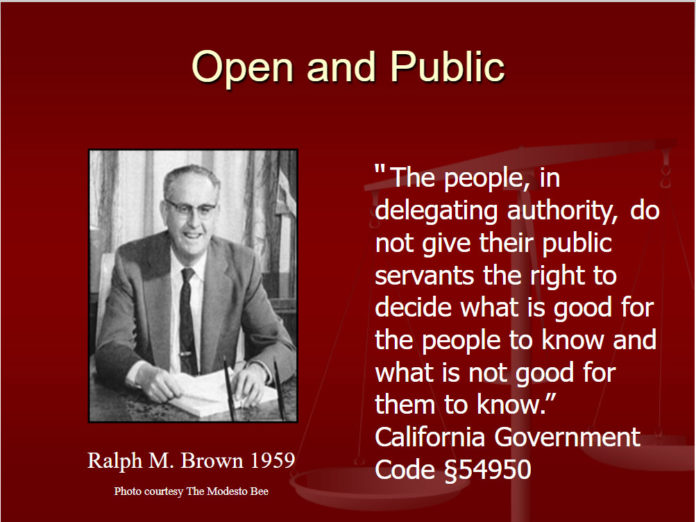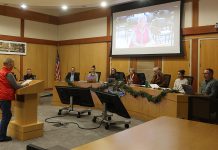A recent article in this paper made reference to the Brown Act, and it warrants explanation what exactly that is. Most people have the correct understanding that it relates to government transparency, to ensure that public business is conducted in an open and transparent manner. This requires that government decisions be made in an open forum, preventing decisions from being made behind closed doors without public input or scrutiny.
The Brown Act does this in three ways: First, it requires open meetings of all legislative bodies (including school boards, county boards, city councils, and local commissions). Second, it requires public notice before any meeting – not only regular meetings such as bi-weekly city council meetings (72 hours advance notice), but also “special” or closed sessions (24 hours notice). Third, it prohibits decision or discussion of items that aren’t clearly described on a meeting’s published agenda.
These notice and agenda requirements mean members of the public must have advance notice of what will be decided or discussed, even if they can’t directly witness a closed session, although they can comment on the closed session’s topic (which is why it must be properly noticed). Closed sessions are limited to specific topics, such as performance reviews and other personnel matters, labor negotiations, and discussions with the City Attorney about possible or ongoing litigation.
The Brown Act also limits private conversations between elected officials by prohibiting “serial meetings,” which occur when members of a legislative body communicate with each other outside of public meetings in a way that violates the spirit of open decision-making.
This includes discussions where one member privately communicates with another (or with a third party) in an attempt to evade the public meeting requirement, even if no formal “meeting” occurs. It includes the use of emails, text messages, and other forms of indirect communication, and meetings that occur “serially” between one member and another, who then carries the conversation to a third member, etc.
Local government officials must be diligent about complying with the law to avoid legal challenges and uphold public trust.










Thank you for explaining the Brown Act. I don’t think there should be any closed sessions, period.